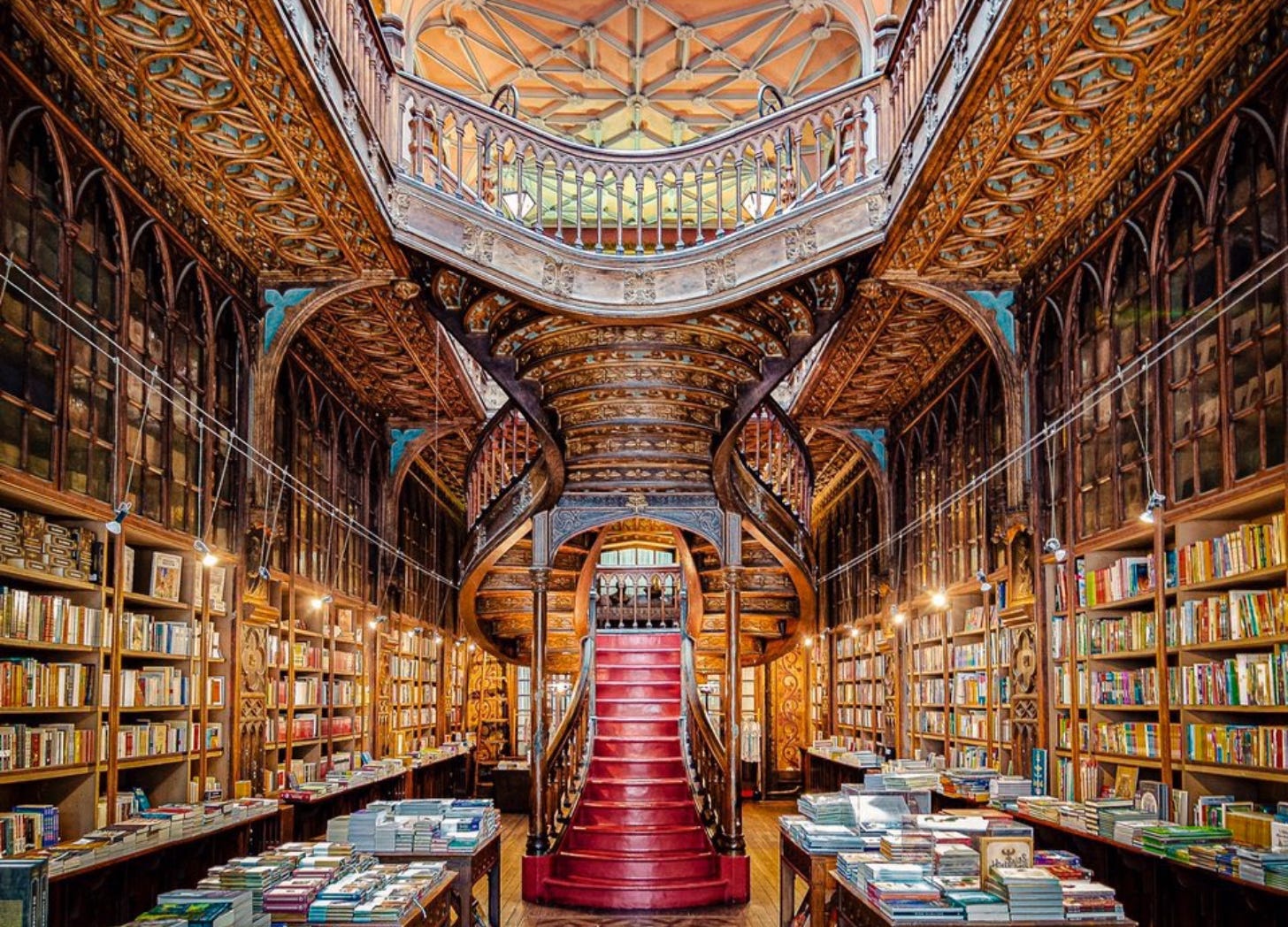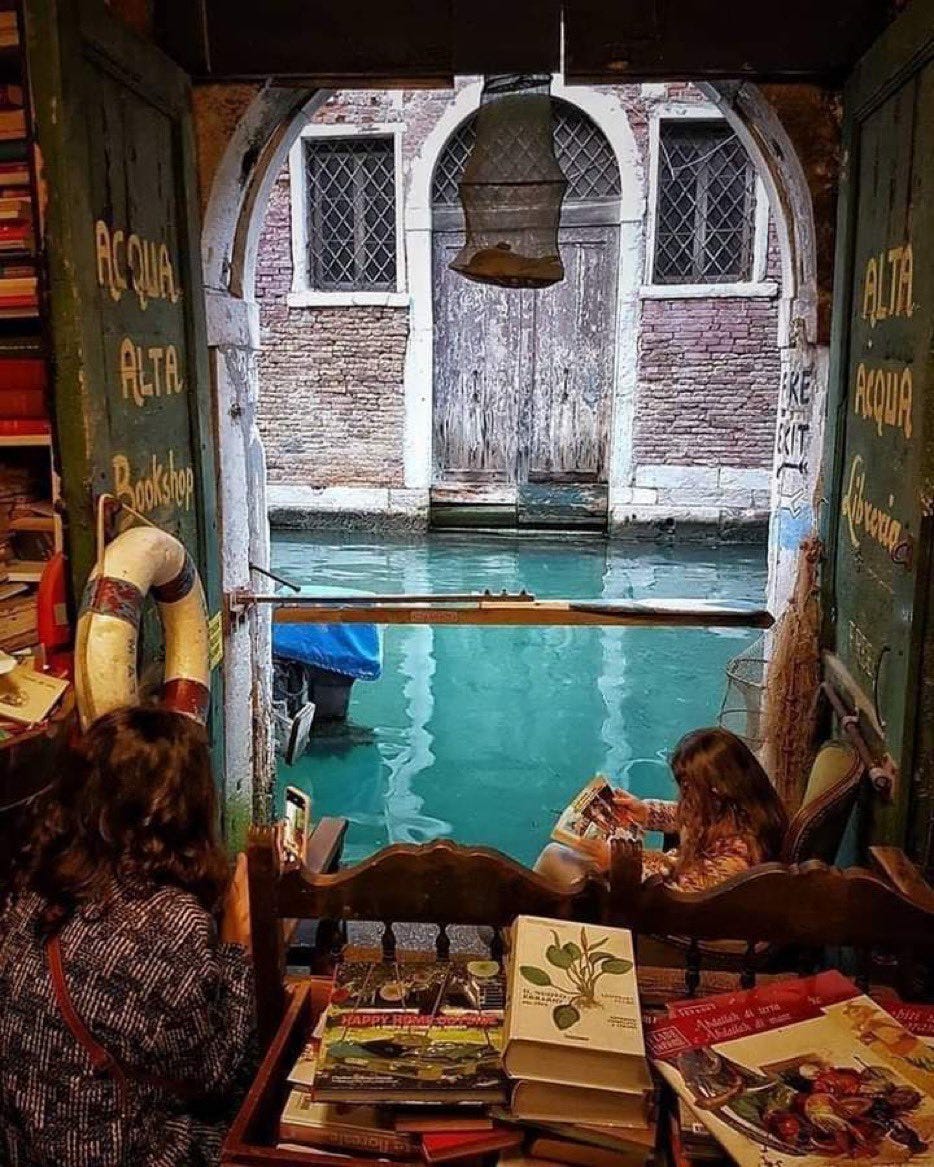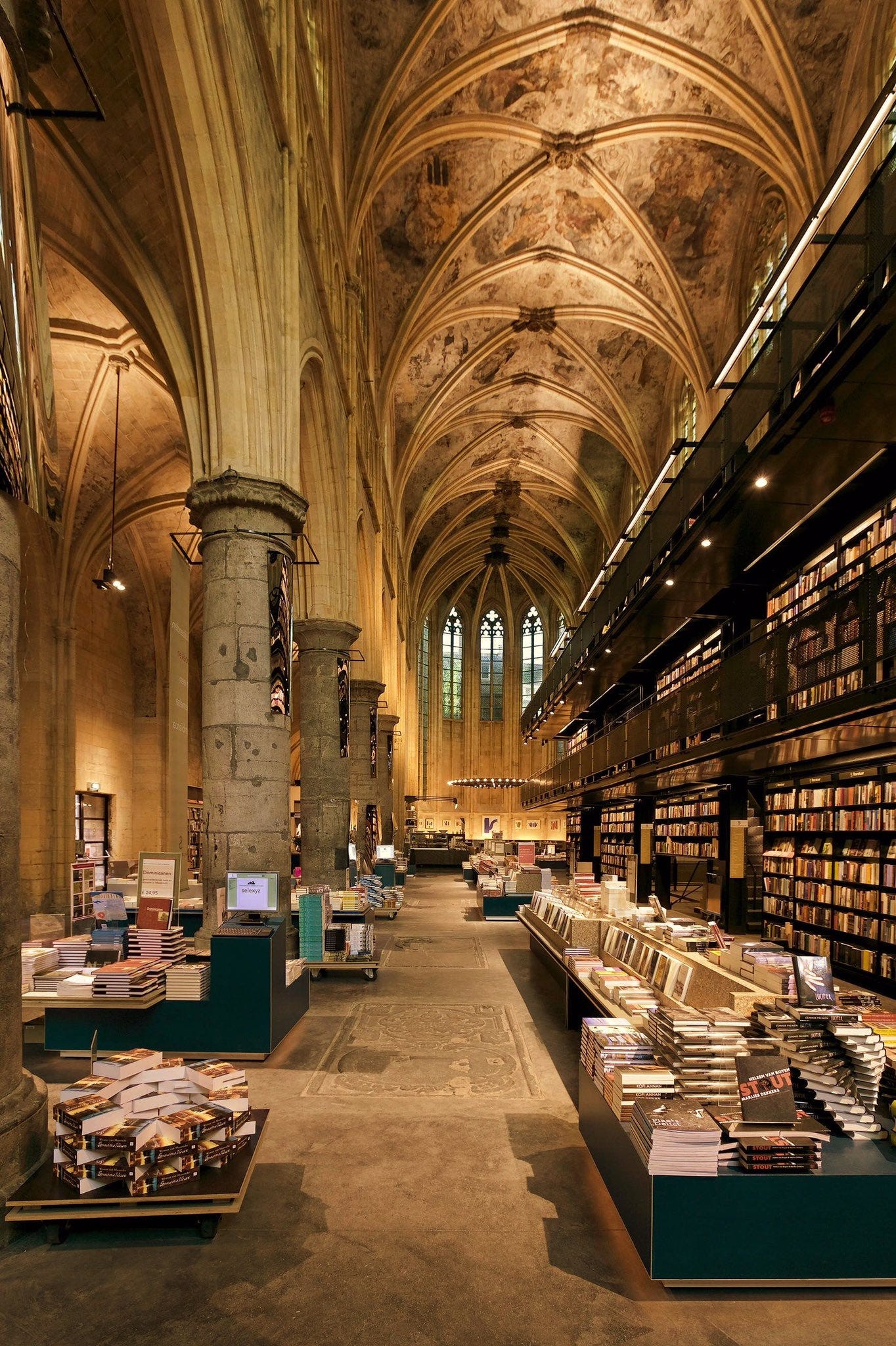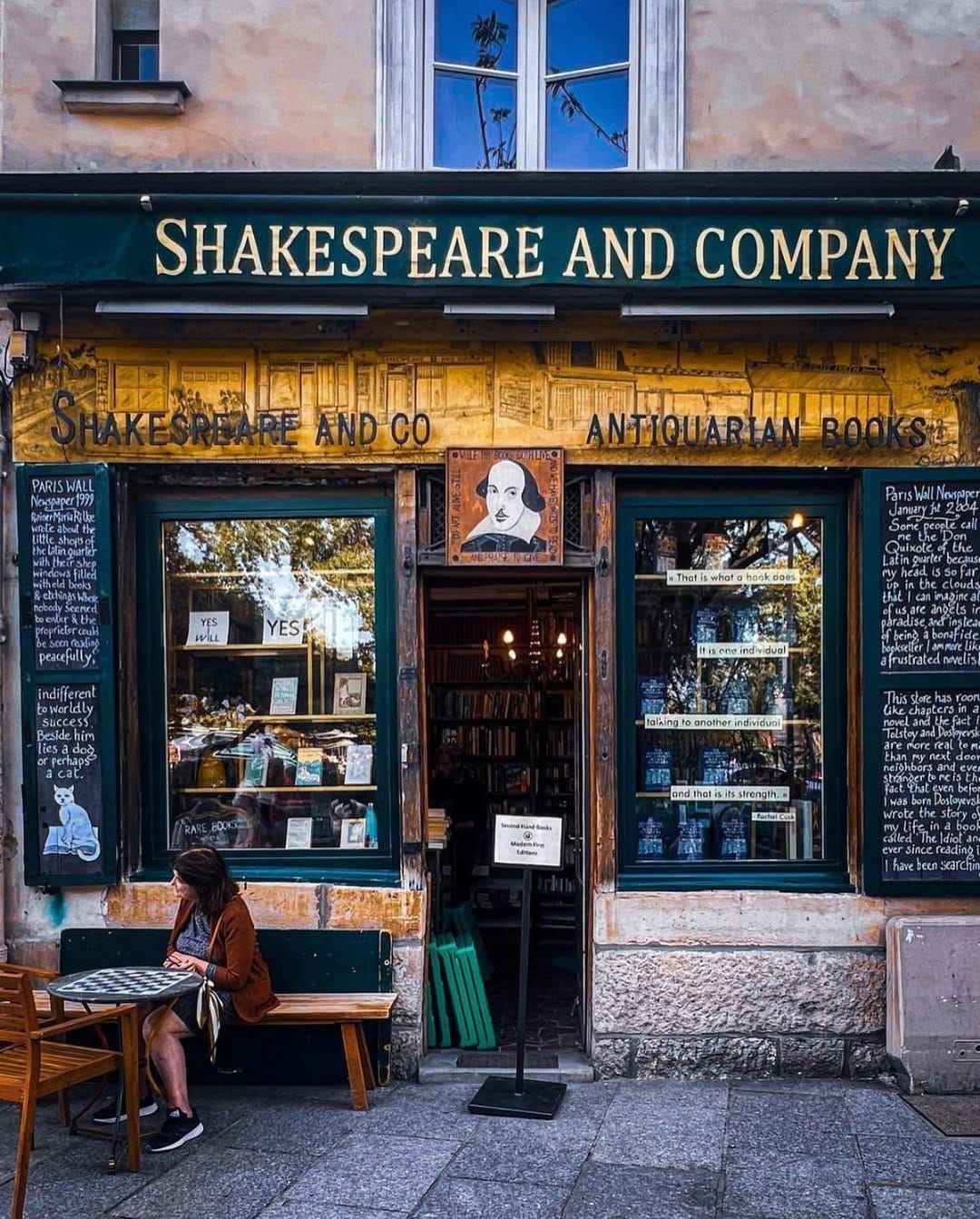The Most Beautiful Bookstores on Earth
10 literary havens every bibliophile must visit at least once in their lifetime...
Some foreign words capture ideas so perfectly that they feel impossible to translate. Today, I want to share one Japanese word that does exactly that. If you love books as much as I do, I promise you’ll adore it, and you might even find yourself slipping it into your own vocabulary.
The word is Tsundoku. It describes the habit of buying books and letting them pile up unread around your home. It originated in the Meiji era, from 1868 to 1912, as Japanese slang, combining tsunde-oku (“to pile things up for later”) with dokusho (“reading books”).
Every book lover knows the feeling of a growing stack of unread books. Some have even suggested that the word should be added to English dictionaries, as it perfectly expresses a universal habit among readers. Instead of feeling guilty, imagine telling yourself that you are simply “practicing tsundoku”…
Beauty is truth is a reader-funded publication that relies entirely on your support. There are no ads here, just a passion for sharing beauty.
Upgrade your subscription for just a few dollars a month to help our mission and access members-only content 👇🏻
Few places inspire as much affection among readers as the bookstore — a refuge with roots reaching deep into history...
The creation of libraries in Ancient Greece sparked a thriving trade among Athenian booksellers, and by the end of the Roman Republic, library ownership had become fashionable, fueling the success of the book trade. The spread of Christianity increased demand for copies of the Gospels and sacred texts for both church and private use, laying the groundwork for the modern system of bookselling, which emerged soon after the invention of printing.
There is a line in ABC of Reading by Ezra Pound that, with remarkable simplicity, captures both the magic and timeless value of books:
Literature is news that stays news.
In other words, great literature never loses its relevance — it continues to speak to each new reader, generation after generation.
Books let you travel without moving your feet, but the literary temples you’re about to see are worth every mile that separates you from them. No matter how far you are, if you can visit, it’s a trip worth taking. And if not, I promise this virtual journey will be just as delightful…
1. Libreria Acqua Alta, Venice
Everything in the “City of Love” seems touched by magic, including its bookstores...
Founded in 2004 by Luigi Frizzo, Italy’s self-proclaimed “most beautiful bookstore” adapts to the city’s notorious floods: books sit in bathtubs, rowboats, waterproof containers, and even a full-size gondola, designed to rise above the acqua alta (’high water’).
2. Selexyz Dominicanen, Maastricht, Netherlands
This 13th century church, repurposed as a storage space by Napoleon in 1794, has been recently transformed into a breathtaking temple of books by the architecture firm Merkx + Girod.
3. Atlantis Books, Santorini, Greece
Back in 2002, two American philosophy students found themselves on the island of Santorini with nothing left to read and no bookstore in sight. After a few glasses of wine, Craig Walzer and Oliver Wise made a bold decision: they would open one themselves.
Joining forces with a few partners, they built bookshelves from reclaimed wood and brought their vision to life. Today, visitors can browse while taking in one of the most breathtaking views of the southern Aegean Sea.
4. Shakespeare and Company, Paris
Tucked into 37 rue de la Bûcherie in Paris’s 5th arrondissement, Shakespeare and Company is often called the world’s most famous bookstore, but the name has a layered history…
The first shop was opened in 1919 by Sylvia Beach on rue Dupuytren, later moving to rue de l’Odéon, where it became a haven for writers like James Joyce, Ernest Hemingway, and Ezra Pound. Beach even published Joyce’s Ulysses there before the store was shut down during the German occupation.
Years later, in 1951, George Whitman founded a bookstore called Le Mistral. With Beach’s blessing, he adopted the name “Shakespeare and Company” in 1964, the year of Shakespeare’s 400th birthday and shortly after Beach’s passing. Since then, the revived shop has remained a magnet for readers, writers, and dreamers from around the world.







